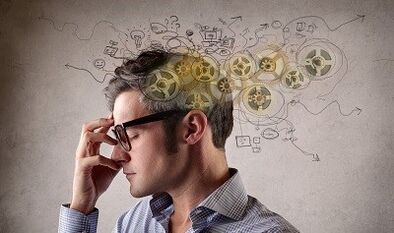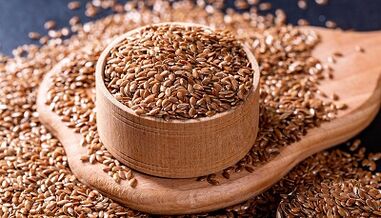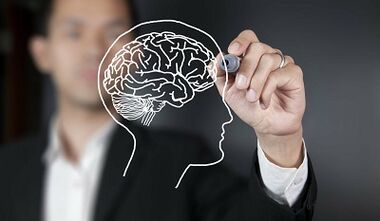
This article contains 15 funds to improve the memory that is available at home. These remedies in everyday life can be very useful for our cognitive functions and prevent the brain function from decrease.
Memory is a cognitive ability that enables us to maintain new information in our heads if we remember everything if necessary. Nevertheless, we can see throughout life how this ability is reduced, and every time it is more difficult for us to remember things. There are many factors that can be involved in memory disorders, such as: B. mental disorders, temporary, stressful situations or injuries. The main factor that predicts a reduction in memory is age.
So far there is a certain consent to determine that the function of the brain, cognitive skills and memory is reduced with age. For this reason, we very often feel over the years how our memory deteriorates. The memory is part of our brain, and in every area of the body we have to take care of softening aging and wear.
People's funds to improve memory
Sage tea
Sage is a plant that is rich in essential oil, and tannins, so it is often used to treat colds, influenza or sore throat.
In fact, this plant has been used for medical purposes for many years because it contains numerous properties that are very useful for the human body. Sage is a stimulant for the digestive system, has disinfectant, anti -inflammatory properties and contributes to regulating blood sugar. It also affects the fats of the nervous system and prevents its oxidation. This fact makes protection and prevention of memory errors. It was shown how sage increases the level of acetylcholine, which plays a key role in the development of memory.
Hence taking Sage Infusion - as a good option to protect all areas of the brain and prevents memory errors.
Ginkgo Biloba
Ginkgo Biloba is another plant with great therapeutic effects that we can currently find. It is used in abundance for the treatment of blood circulation problems, blood vessels and to improve memory and concentration. Various studies have confirmed the effectiveness of this plant to protect and improve memory and cognitive functions.
In the study, two groups of young people and students were tested for concentration and memory.
First, the results of 52 young people were compared, half of whom (26) used a dose of 120 mg ginkgo biloba before the test tested cognitive activity, and the other half (26) used nothing.
Then another study was carried out by 40 subjects, half of whom received 120 mg Ginkgo Biloba per day for 6 weeks, and the other half (20) did not use a single dose of this system.
The conclusion that came after these studies is that the Ginkgo Biloba improved the results of tests for concentration and memory.
Subsequently, additional studies were carried out in which it was found that the use of this plant is also useful for the treatment of the vascular insufficiency of the brain.
Chocolate

Chocolate reduces blood pressure, improves blood flow in the liver or protects the skin surface. In addition, interest in the influence of chocolate has grown on memory recently.
In a study in which 37 patients between the ages of 50 and 69 were analyzed by high flavonol cans (cocoa bulmol molecules), showed how this substance increases the activity of the brain in the hippocampus.
Hippocampus is a section of the brain, which is seen as an epicenter of memory. Most memories are stored in this brain area and require a good job of this structure to give the training.
Therefore, the use of chocolate and other products with a high cocoa content can be a good choice as usual to improve our memory.
Plum
Plums are fruits with a low energy value with a variety of vitamins. Vitamin C, B6 and E are the most famous in this meal.
The different advantageous effects of this fruit were described under which we find an improvement in memory. Plums are very useful to control the blood sugar, protect the heart, improve the digestive process and to improve memory.
With regard to the storage options, their consequences were described on the basis of the power, which negatively influenced the properties of this food, the neutralization of free radicals, the cognitive functions.
Green tea
Green tea is one of the teas that include a larger amount of substance and properties in its preparation. It is a strong antioxidant, anti -acocularity, stimulates immunity and can prevent the occurrence of various diseases.
With regard to cognitive functions, it is determined that this substance can improve memory and concentration. According to the study, green tea can be very useful for memory and spatial location.
The subjects were rodents and not humans because, given the results we have received, we assume that green tea can increase human memory.
broccoli
Broccoli can become food, which contributes to maintaining and developing memory opportunities.
It has a high degree of phosphorus that you can increase the container for saving information. It also contains vitamins A, C and E, amino acids, zinc, potassium, high anti -cancer properties and antioxidants.
flax

Flax seeds are food, very rich in omega-3 acids, so it can be useful to improve cognitive skills.
The numerous advantages of this plant were described as anti -inflammatory and against cancer cancer or participation in muscle regeneration.
You can use oil or take seeds with water.
Ginseng root
Ginseng is a highly stimulating plant with which you can increase blood supply and therefore increase productivity.
This fact indicates that ginseng root is a substance that increases the mental functions and memory.
Nevertheless, it should be taken into account that the doses are too high so that these substances can have a negative impact on health so that you should use with caution.
Bakop
This plant is actively used in medicine due to the properties it represents.
It has been shown that the extracts of this plant increase the ability of memory and learning and the examination of their possible role as a prophylactic factor in Alzheimer's disease.
Diet control
The importance of memory for memory is subject to research, which has been carried out in relation to the main disorders of this type of functions. Especially with regard to Alzheimer's disease, it was found that in countries in which daily consumption of calories is low is much lower than in such disorders. This data show that the consumption of very high calories can be a risk factor for such diseases and so that memory deteriorates.
On the other hand, it was also evident how polyun unsaturated fatty acids and vitamins antioxidants (vitamin E and C) play a high role of non-propere for the treatment of Alzheimer's disease.
In order to protect and preserve the memory, it is therefore important to carry out balanced diets that do not bring excess calories and switch on fiber and necessary vitamins.
It should be taken into account that the brain is part of the body that takes care of different parts of the body. It is necessary to carry out a balanced diet in order to take up and protect the structures of the brain.
Intellectual development

Other factors associated with the loss of memory and the occurrence of neurodegenerative diseases are not enough training and intellectual activity.
Although every person can have problems with memory, regardless of intellectual activities, people with a higher level of education have the lower prevalence of this problem.
It is therefore very important to lead a certain lifestyle in which there are various mental processes and one of the main funds for memory.
Tensile memory
In view of what was said in the previous paragraph, memory training is very useful in a special way. The brain works like all other muscles in our body. So if it is served in good condition, its destruction can be forgotten.
Therefore, the exercises for memory should not only be made for the children or the illness of Alzheimer's, we all have to make their consequences and benefit from it.
So far there are a large number of games and applications on the Internet that can be useful for our memory.
Physical activity
Many people think that physical activity only serves to improve the condition of different parts of the body. However, this is not the case, since it has been proven, for example, that exercises also have numerous advantages for the structures of the brain. The exercises have many great advantages for the brain and showed that they can have a positive effect on memory.
Assign
In order to prevent a violation of cognitive functions, it is important to lead a calm and mentally healthy lifestyle. Fear, stress or depression are psychological factors that can strongly influence memory.
Use calming or relaxing exercises, exercise methods for relaxation or meditation - these are good opportunities to combat the deterioration of the memory.
Drink more water

The brain is 80% out of the water, so that it reacts sensitively to its lack of weakening the ability to remember and worsen attention. It is worth removing dehydration because the memory improves. Every day you have to drink up to 8 glasses of clean water. Water improves memory, attention, increases the ability to concentrate, perceive new information and gives strength. In order to improve memory, it is worthwhile to use coffee, tea, soda - to give up all drinks with caffeine recommendors. Caffeine suppresses the enzymphosphodiesterera, which is required to develop the ability to concentrate. In addition, shock cans from caffeine dehydrate the body.
Drinking water contributes to the brain working faster. The positive effect of water is particularly striking when a person is thirsty - if it is satisfied, the brain focuses better on the execution of tasks.
Researchers carried out an experiment with 34 men and women. All subjects had to exist twice intellectual tests. The first time - after eating a grain rod for breakfast, and the second time - after washing the bar out of the bottle with water.
At the same time, none of the volunteers ate or drank on the eve of the experiment. And before the start, the researchers were interested in the participants how strong their thirst was.
As a result, it turned out that volunteers who did not want to drink showed the same response rate in tests in both cases - water occupied for breakfast or not. But those who were thirsty accelerated after drank water: their brain started working faster than before.
In the past, individual studies have shown that dehydration leads to a reduction in the gray substance and, as a result, a deterioration in intellectual skills.
During one of the previous experiments, British researchers scanned the brain of young people who drove bicycles within an hour and a half. At the same time, some teenagers wore in shorts and t -shirts, and the rest in warm clothes that provoked plenty of sweating. As a result, they lost many liquids with later, and scanning showed them a contraction of the brain tissue.
It turned out that 90 minutes of intensive sweating reduce a person's spiritual abilities as much as they go back all year round, which leads to aging. After one or two glasses of water, however, the brain quickly returns to normal condition. It follows that the regular use of enough water effectively contributes to maintaining brain activity.













































































